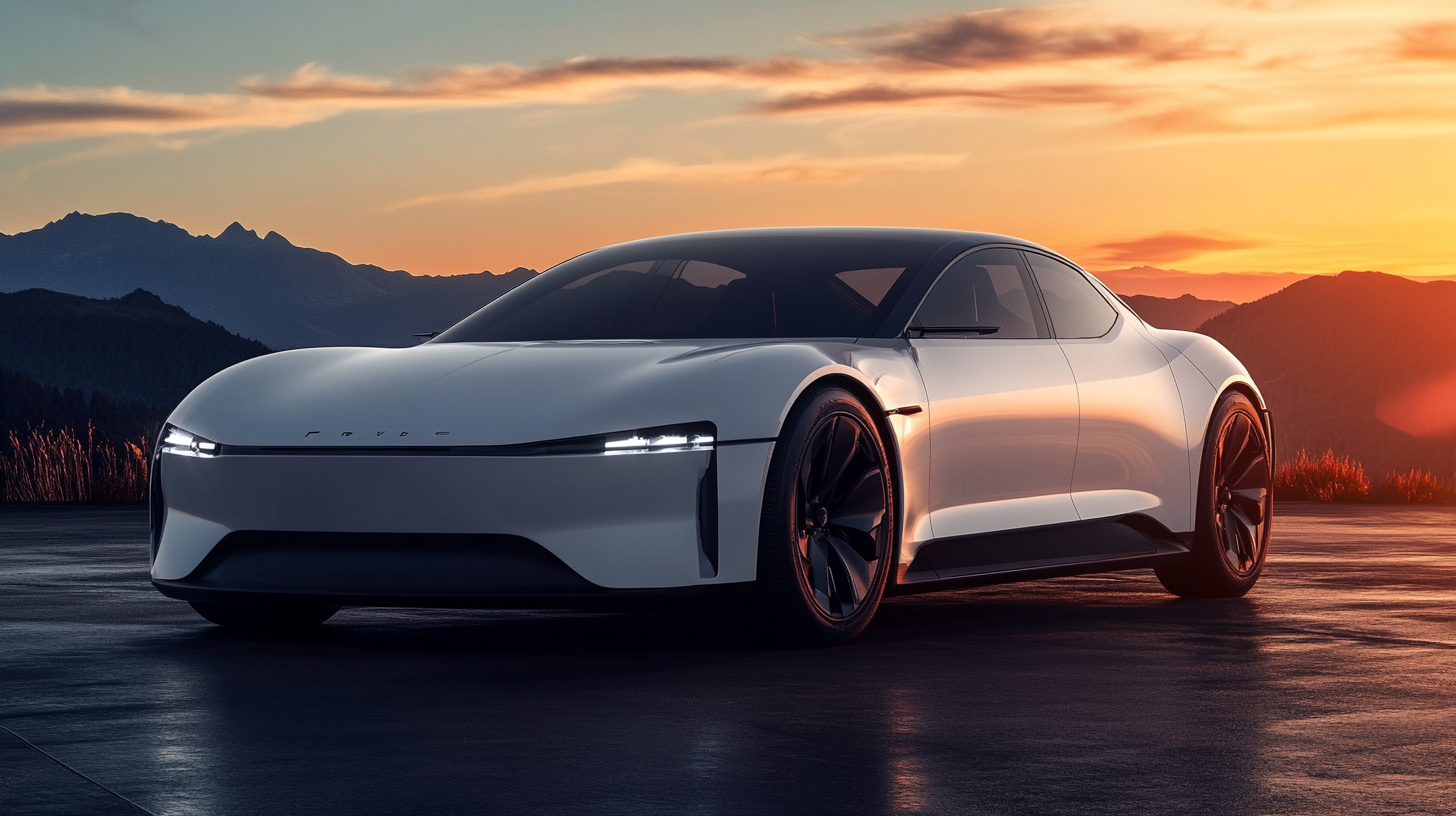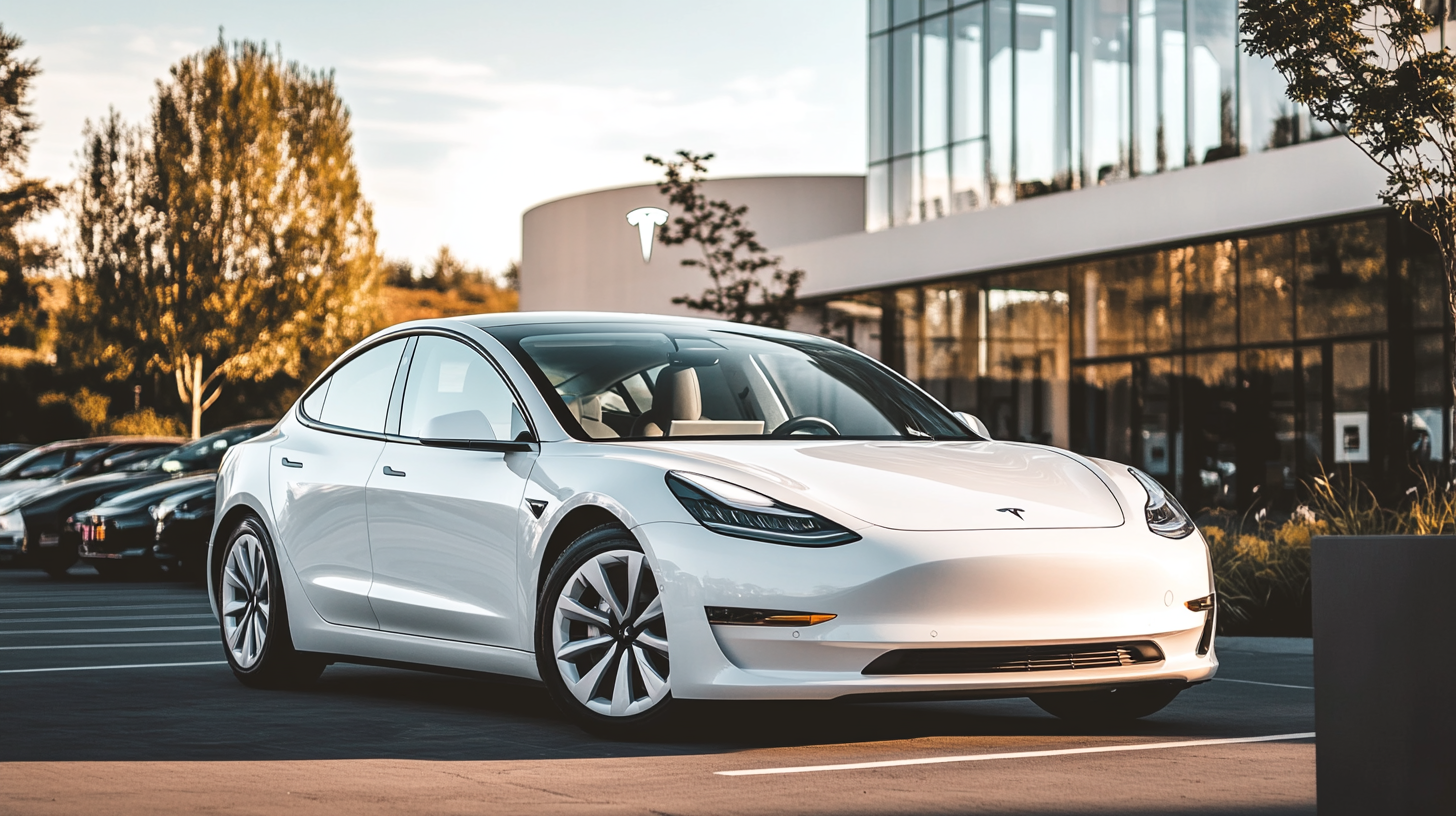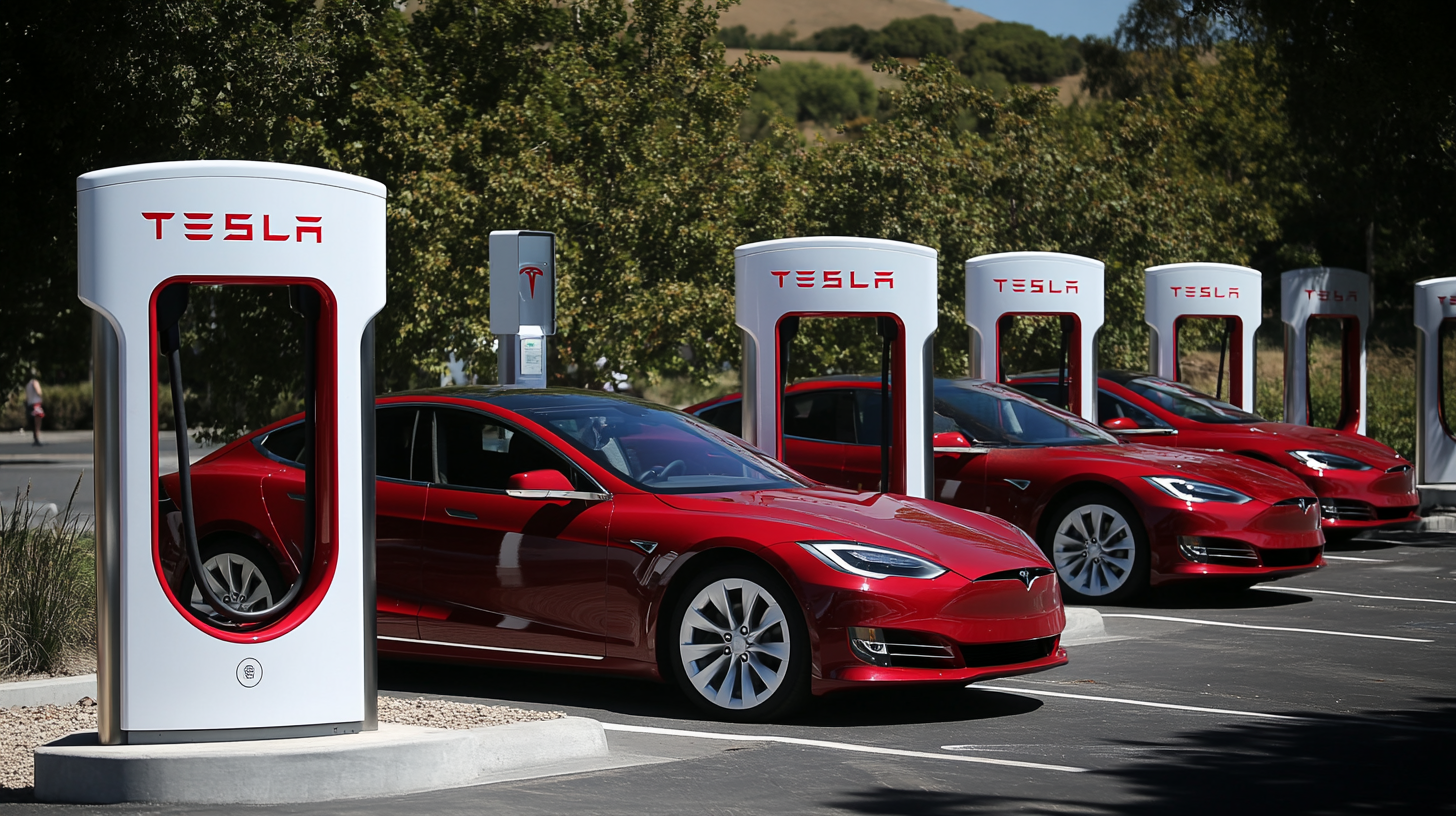Sorry. We did not find anything.
What Are the Benefits of Investing in New Electric Vehicle Technology?
As the automotive industry continues to evolve, the shift towards sustainable transportation has never been more crucial. New EV cars are at the forefront of this revolution, representing a significant investment opportunity for forward-thinking investors. According to a recent report by the International Energy Agency, global electric vehicle sales surged by a remarkable 108% in 2021, with 6.6 million new EVs hitting the roads. This accelerating trend indicates not only a growing acceptance of electric vehicles but also a robust market potential that investors cannot afford to overlook.
Investing in new electric vehicle technology offers numerous benefits, from contributing to environmental sustainability to capitalizing on the burgeoning market demand. The global market for electric vehicles is projected to reach $802.81 billion by 2027, growing at a compound annual growth rate (CAGR) of 18.2% from 2020 to 2027, as reported by Fortune Business Insights. As countries implement stricter emissions regulations and consumers become more environmentally conscious, investing in new EV cars presents a unique opportunity to align profits with positive environmental impact, positioning investors at the forefront of a transformative industry.

Advantages of Sustainable Transportation in the Electric Vehicle Sector
The increasing concern about global warming, primarily driven by greenhouse gas emissions from human activities, underscores the importance of sustainable transportation. The shift towards electric vehicles (EVs) represents a significant advancement in this effort. By embracing electric vehicle technology, we can substantially reduce carbon emissions, thereby mitigating the environmental impact of transportation. Electric vehicles offer multiple advantages, chief among them being their potential to decrease reliance on fossil fuels. This shift not only helps in cutting down emissions but also promotes the use of renewable energy sources. As nations invest in cleaner energy production, the carbon footprint of electric vehicles continues to shrink. Furthermore, advancements in EV technology enhance energy efficiency, making them an increasingly viable option for consumers looking to minimize their environmental impact. Moreover, the adoption of electric vehicles aligns with international strategies for carbon neutrality and sustainable development. As nations like China emphasize the importance of ecological protection in their economic development plans, the electric vehicle sector stands out as a crucial element in achieving these goals. By fostering innovation and investment in EV technology, we can drive the large-scale transition to sustainable transportation, paving the way for a cleaner, greener future.

Economic Opportunities: Jobs and Growth in EV Technology Investment
Investing in new electric vehicle (EV) technology presents significant economic opportunities, particularly in terms of job creation and growth. According to a report by the International Energy Agency (IEA), the global electric vehicle market is expected to grow substantially, projecting that there will be 145 million electric vehicles on the road by 2030. This surge in demand drives the need for skilled labor across various sectors, from manufacturing and assembly to research and development. The U.S. Department of Energy estimates that for every 1,000 EVs sold, approximately 10 jobs are created in manufacturing alone, illustrating a direct link between EV sales and employment.
Moreover, the shift towards EVs fosters innovation, pushing traditional automotive suppliers to diversify and invest in new technologies. A study by the Boston Consulting Group (BCG) indicated that the EV sector could create up to 1.1 million jobs in the United States by 2030, not only in direct vehicle production but also in support industries such as battery manufacturing and charging infrastructure. As traditional automakers and new entrants alike ramp up their EV offerings, this inflow of investments will catalyze a competitive landscape that incentivizes both efficiency and technological advancement.
Furthermore, regions that strategically position themselves in the EV supply chain can expect to attract more investment, leading to economic revitalization. A report by the Center for Strategic and International Studies (CSIS) underscores that states and cities promoting electric vehicle infrastructures will create a conducive environment for growth, both in local job markets and wider economic frameworks. By channeling resources and funding into EV technology, regions not only prepare for future mobility solutions but also set the stage for a more robust economy, driven by sustainability and innovation.

Environmental Impact: Reducing Carbon Footprint with Electric Vehicles
Investing in new electric vehicle (EV) technology presents numerous advantages, especially when considering its significant environmental impact. One of the primary benefits lies in the reduction of carbon footprints associated with traditional gasoline-powered vehicles. As the global demand for cleaner transportation alternatives rises, electric vehicles emerge as a powerful solution to lower greenhouse gas emissions. By relying on electricity instead of fossil fuels, EVs contribute to a marked decline in air pollutants, leading to improved air quality and healthier urban environments.
Moreover, advancements in battery technology and renewable energy sources complement the shift toward electrification. Many EVs can now be charged using solar or wind energy, creating a sustainable loop that further minimizes their environmental impact. This synergy not only reduces reliance on coal and natural gas but also promotes energy independence. As governments and organizations support policies to phase out combustion engines, the move toward electric mobility becomes not just an individual choice but a collective responsibility that benefits society as a whole.
In addition to lowering emissions, electric vehicles help mitigate climate change, making them a crucial element in global efforts to combat environmental degradation. The ongoing investment in EV technology signifies a commitment to a greener future, where clean transportation plays a vital role in achieving carbon neutrality and promoting a healthier planet for generations to come.

Technological Innovations: The Future of Mobility and Energy Efficiency
The advent of electric vehicle (EV) technology is more than just a trend; it's a significant leap towards smarter mobility and energy efficiency. Technological innovations in this sector are revolutionizing the way we approach transportation, offering cleaner alternatives to traditional fossil fuel-powered vehicles. With advancements in battery technology, such as increased energy density and faster charging capabilities, electric vehicles are becoming more accessible and practical for everyday consumers. This shift not only minimizes our carbon footprint but also enhances the usability and convenience of driving an electric vehicle.
Moreover, the integration of cutting-edge technology, such as artificial intelligence and smart connectivity, is paving the way for a safer and more efficient driving experience. EVs can now communicate with each other and infrastructure, optimizing traffic flow and reducing congestion. Features like regenerative braking systems are further improving energy efficiency, allowing vehicles to reclaim energy during braking and extend their range. As these technologies evolve, they promise not only to make electric vehicles more appealing but also to contribute positively to urban planning and a more sustainable future.
Through consistent investment in innovation, the electric vehicle industry is setting a foundation for the future of mobility that prioritizes energy efficiency and environmental health. As consumers become more aware of the benefits of electric vehicles, including reduced operating costs and lower emissions, the transition to a more sustainable transportation ecosystem is gaining momentum. This shift is not just a technological advancement; it represents a cultural change in how we perceive and engage with mobility, underscoring the critical role of innovation in steering us towards a more sustainable future.
Government Incentives and Policies Supporting EV Development
The development of electric vehicle (EV) technology has been significantly bolstered by various government incentives and policies. These initiatives aim to accelerate the transition to cleaner transportation, reducing dependency on fossil fuels and minimizing carbon emissions. For instance, many governments worldwide offer tax credits, rebates, and grants to both manufacturers and consumers, making EVs more accessible and financially attractive. This support not only encourages individuals to invest in electric vehicles but also motivates manufacturers to innovate and improve their offerings.
Additionally, stringent emissions regulations are pushing automotive companies to invest heavily in EV technology. Governments are setting ambitious targets for reducing greenhouse gas emissions, compelling manufacturers to shift focus from traditional combustion engines to electric models. These policies often include penalties for non-compliance, which further incentivizes companies to adopt greener technologies. As a result, the EV market is becoming increasingly competitive, driving advancements in battery life, charging infrastructure, and overall vehicle performance.
Moreover, governments are investing in expanding charging networks, overcoming one of the significant barriers to EV adoption: range anxiety. By funding the installation of charging stations in urban areas and along major highways, authorities are making it easier and more convenient for consumers to switch to electric vehicles. This strategic investment not only supports existing EV owners but also encourages potential buyers who may have hesitated due to concerns about charging accessibility. Such comprehensive governmental support is paving the way for a more sustainable automotive future.

